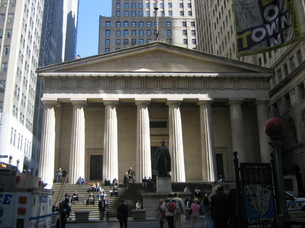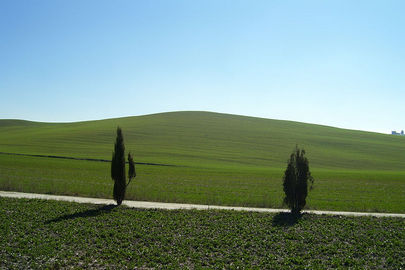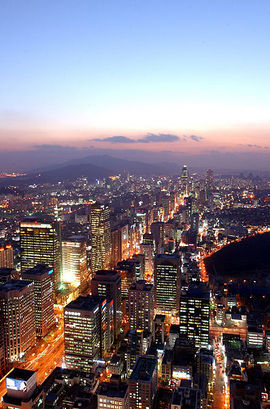
Economic democracy is a concept that is way too under-reported. For good reason: It would be better than economic liberalism.
An egalitarian view of natural resources: Since this is a republic and a republic belongs to its people, all natural resources would owned by the people. Therefore basic access to resources (water, oil, electricity, food) should be provided to ALL by independent state-owned enterprises (source). At the same time, food production would be regionalized (farmers markets instead of Walmarts). Countries with state-owned electricity providers (France) and state-owned oil enterprises (Iran, Mexico) pay FAR less than we have to.
Capital and profit sharing. This is the heart of economic democracy. Employees would be the shareholders (source). That would guarantee that they have a say in the future of the company and it would be in their interest to innovate in order to revenues which would increase their wages. Everyone who chooses to do so, could be a consuming producer or a producing consumer.
Social market economy (source): Combining private enterprise with government regulation to establish fair competition, maintaining a balance between a high rate of economic growth, low inflation, low levels of unemployment, good working conditions, social welfare, and public services, by using state intervention. Such an economy would actively break up and prevent private monopolies, oligopolies and monopolistic competition.
Equal opportunity: Free Kindergarten-PhD education. The only thing that would change the dreams of students would be their own minds. People would freely choose their own future. Nobody could claim that he/she did not have a chance + we would have a highly flexible workforce that could change professions to adapt to new economic environments. These new environments are caused all the time through growth, recessions, new inventions and even catastrophes. We already a movement that seeks to provide free education to all people. The most famous example is the Wikimedia foundation. In most European countries, students don't pay any tuition. However, their education systems usually don't allow for a career change. The positive side of the US education system is that you can get educated whenever you want. The negative side is the cost. Free K-PhD education would take the best of both worlds.
A government that encourages investments in sustainable development, research and the implementation of modern technology. This could happen through state-owned enterprises or cooperative capitalism where companies work with the government to benefit each other. The government would provide tax incentives and subsidies and thus encourage enterprises to move to e.g. green energy and the companies would help the government to achieve its goal to become more energy-independent.
As you can hopefully see, economic democracy sounds like a great concept. You might wonder why this is not reality, yet. The answer to that is easy: Most people do not know about economic democracy. The best start to inform yourself about this is the Wikipedia article (Economic democracy) and for those who want to know more, the references provide a huge amount of sources. Another obstacle is the market itself. We cannot enforce economic democracy. The transition would have to be the decision of the company owners and they are not likely to give up their wealth. Who would?
That's why this is an ideology. It is the ideal that will never be reality. However, we can make some of its components reality in order to improve humankind and the distribution of goods and services.
An egalitarian view of natural resources: Since this is a republic and a republic belongs to its people, all natural resources would owned by the people. Therefore basic access to resources (water, oil, electricity, food) should be provided to ALL by independent state-owned enterprises (source). At the same time, food production would be regionalized (farmers markets instead of Walmarts). Countries with state-owned electricity providers (France) and state-owned oil enterprises (Iran, Mexico) pay FAR less than we have to.
Capital and profit sharing. This is the heart of economic democracy. Employees would be the shareholders (source). That would guarantee that they have a say in the future of the company and it would be in their interest to innovate in order to revenues which would increase their wages. Everyone who chooses to do so, could be a consuming producer or a producing consumer.
Social market economy (source): Combining private enterprise with government regulation to establish fair competition, maintaining a balance between a high rate of economic growth, low inflation, low levels of unemployment, good working conditions, social welfare, and public services, by using state intervention. Such an economy would actively break up and prevent private monopolies, oligopolies and monopolistic competition.
Equal opportunity: Free Kindergarten-PhD education. The only thing that would change the dreams of students would be their own minds. People would freely choose their own future. Nobody could claim that he/she did not have a chance + we would have a highly flexible workforce that could change professions to adapt to new economic environments. These new environments are caused all the time through growth, recessions, new inventions and even catastrophes. We already a movement that seeks to provide free education to all people. The most famous example is the Wikimedia foundation. In most European countries, students don't pay any tuition. However, their education systems usually don't allow for a career change. The positive side of the US education system is that you can get educated whenever you want. The negative side is the cost. Free K-PhD education would take the best of both worlds.
A government that encourages investments in sustainable development, research and the implementation of modern technology. This could happen through state-owned enterprises or cooperative capitalism where companies work with the government to benefit each other. The government would provide tax incentives and subsidies and thus encourage enterprises to move to e.g. green energy and the companies would help the government to achieve its goal to become more energy-independent.
As you can hopefully see, economic democracy sounds like a great concept. You might wonder why this is not reality, yet. The answer to that is easy: Most people do not know about economic democracy. The best start to inform yourself about this is the Wikipedia article (Economic democracy) and for those who want to know more, the references provide a huge amount of sources. Another obstacle is the market itself. We cannot enforce economic democracy. The transition would have to be the decision of the company owners and they are not likely to give up their wealth. Who would?
That's why this is an ideology. It is the ideal that will never be reality. However, we can make some of its components reality in order to improve humankind and the distribution of goods and services.
This is your new blog post. Click here and start typing, or drag in elements from the top bar.



